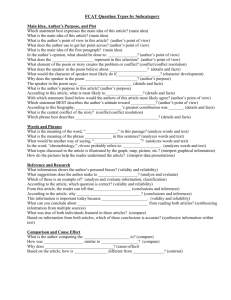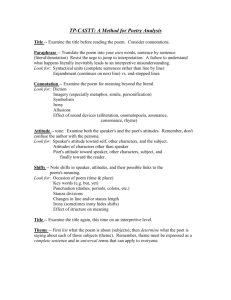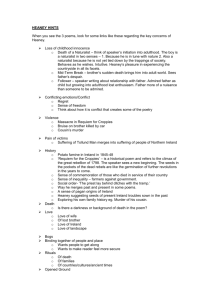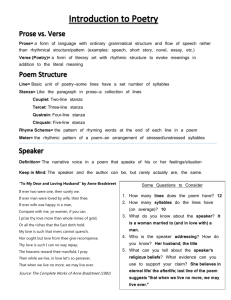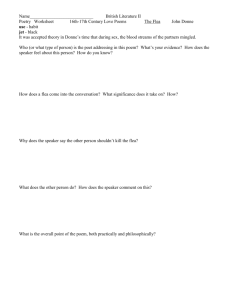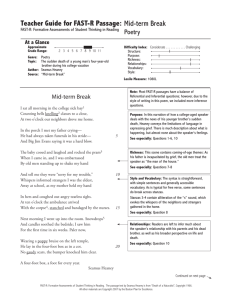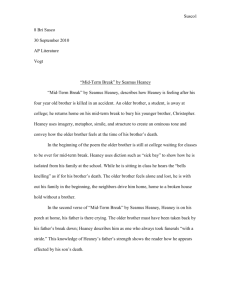"Mid-Term Break" Poem Analysis Essay
advertisement
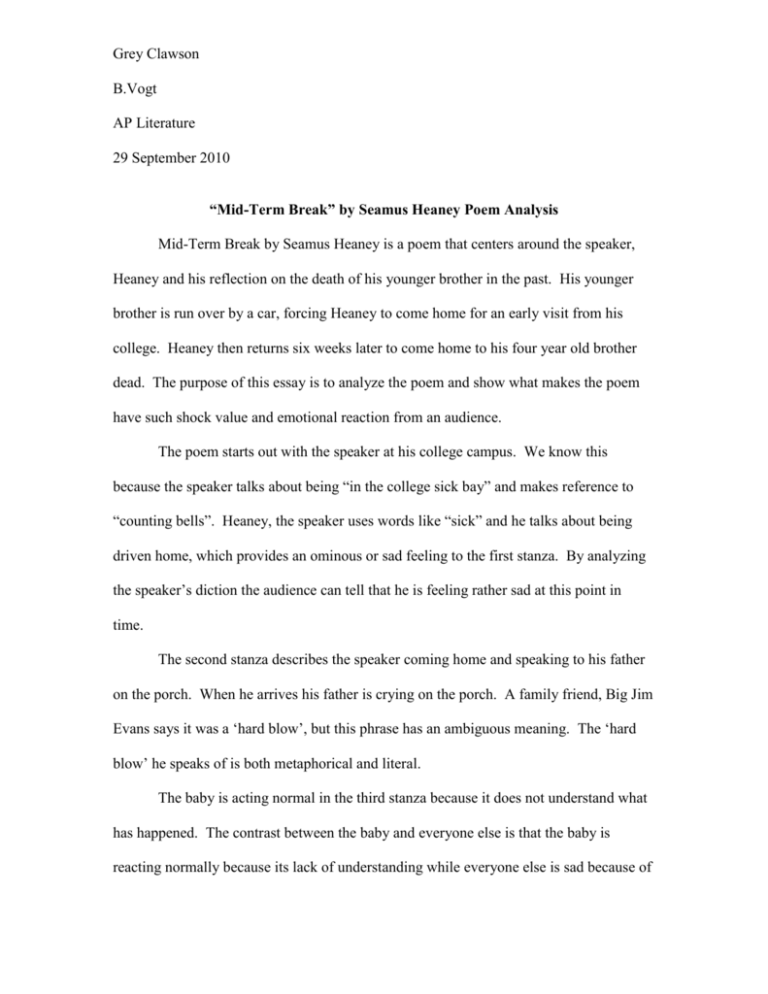
Grey Clawson B.Vogt AP Literature 29 September 2010 “Mid-Term Break” by Seamus Heaney Poem Analysis Mid-Term Break by Seamus Heaney is a poem that centers around the speaker, Heaney and his reflection on the death of his younger brother in the past. His younger brother is run over by a car, forcing Heaney to come home for an early visit from his college. Heaney then returns six weeks later to come home to his four year old brother dead. The purpose of this essay is to analyze the poem and show what makes the poem have such shock value and emotional reaction from an audience. The poem starts out with the speaker at his college campus. We know this because the speaker talks about being “in the college sick bay” and makes reference to “counting bells”. Heaney, the speaker uses words like “sick” and he talks about being driven home, which provides an ominous or sad feeling to the first stanza. By analyzing the speaker’s diction the audience can tell that he is feeling rather sad at this point in time. The second stanza describes the speaker coming home and speaking to his father on the porch. When he arrives his father is crying on the porch. A family friend, Big Jim Evans says it was a ‘hard blow’, but this phrase has an ambiguous meaning. The ‘hard blow’ he speaks of is both metaphorical and literal. The baby is acting normal in the third stanza because it does not understand what has happened. The contrast between the baby and everyone else is that the baby is reacting normally because its lack of understanding while everyone else is sad because of Grey Clawson B.Vogt AP Literature 29 September 2010 the loss. The adults stand up and treat the speaker with respect by shaking his hand, yet the speaker feels embarrassed at the same time because he still does not understand what has happened. The old men told the speaker that they were sorry for his trouble because he had to come home from school. The people around are whispering to each other letting each other know that the boy who has just walked into the room was the eldest son who was away at school. His mother was holding his hand to comfort him for what he was about to find out. The fifth stanza is about the injury and return to the house of the young person. This is important because it reveals what the whole poem is centered on. “In hers and coughed out angry tearless sighs” describes the mother’s reaction to the death of the child. Heaney refers to the body as a corpse, suggesting the idea that the corpse is no longer a person. The speaker says that the corpse is “stanched and bandaged” because it is not his younger brother he is seeing but something much more depressing. The shift in time is six weeks ahead from the last time the speaker has seen his younger brother. The speaker says “I went up into the room”, looking at his brother in doing so. The white flower represents purity, which is found in the young boy. The verse is contrasting with the beginning as in it is much less morbid and depressing, but more accepting. The speaker acknowledges his brother for the first time in the poem. This shows that Heaney was shocked at first, but has now accepted the tragedy. Grey Clawson B.Vogt AP Literature 29 September 2010 The metaphor of ‘wearing’ is used because the bruise is not really a part of him. The bruise is described as a poppy because a poppy is linked to death. The simile “he lay in the four foot box as in his cot” makes the poem sadder because the speaker never directly refers to it as a coffin, showing a somewhat sense of denial. The speaker ends the poem with the line “A four foot box, a foot for every year”, leave s the audience with a feeling of shock and melancholy. For the first time the poem tells that the person dead is a child. This also provides great shock value for the audience. The poem does have much shock value and emotional reaction after reading it for some. Personally, the emotional and tragic circumstances of the poem leave a very large impression on me as a reader. Some may have different reactions, but there is no arguing that this is a very tragic, and very well-written poem.


